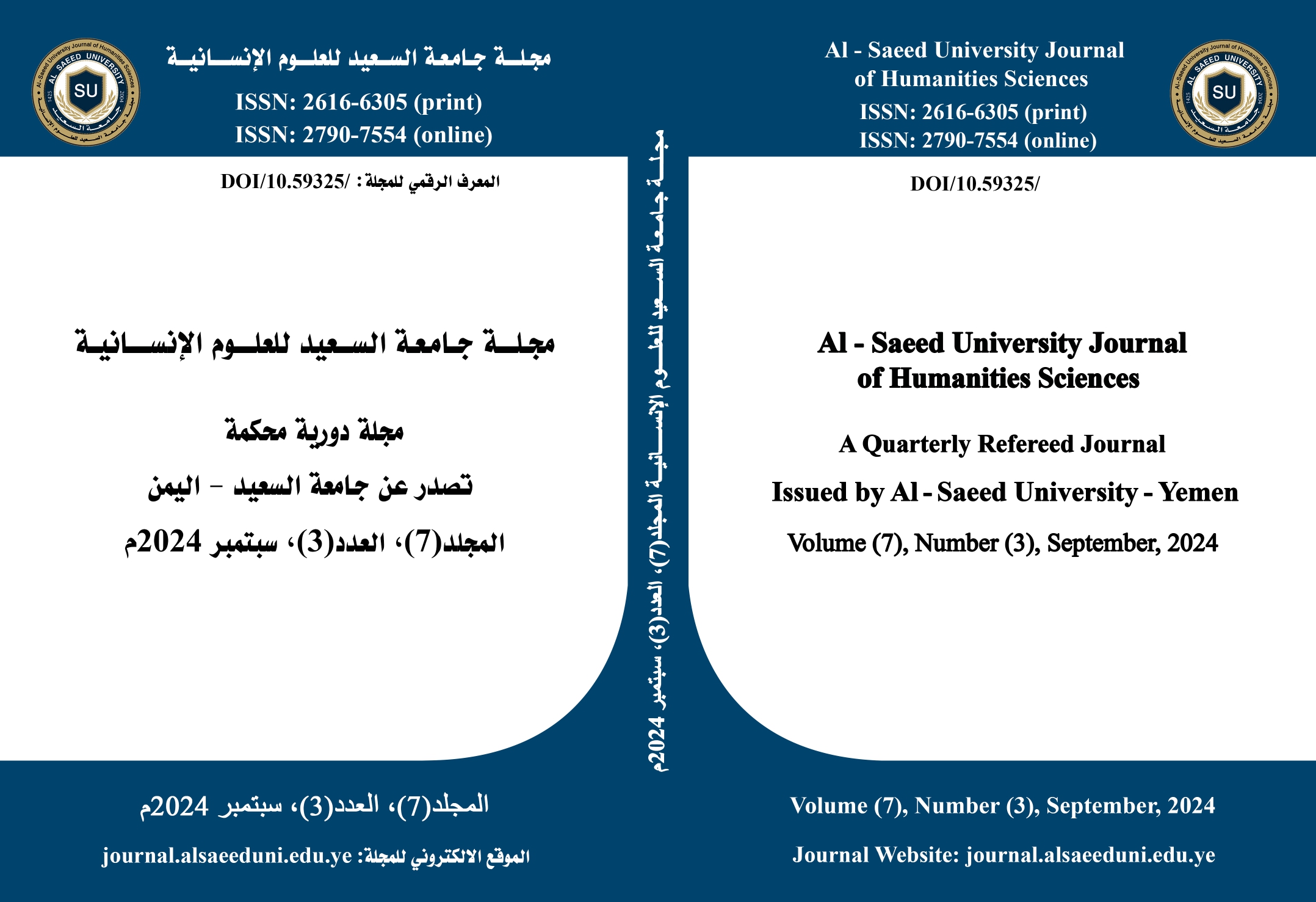The reality of the applied college programs at AlQassim University in light of the repercussions of the fourth industrial revolution from the point of view of its employees
DOI:
https://doi.org/10.59325/sjhas.v7i3.232Keywords:
programs, repercussions, Fourth Industrial Revolution, Qassim University, Applied CollegeAbstract
The study aimed to identify the reality of the programs of the Applied College at Qassim University in light of the repercussions of the Fourth Industrial Revolution from the point of view of its employees, and used the descriptive approach with its qualitative entrance, and the semi-codified interview as a tool to collect data from an intentional sample of employees of the Applied College programs, and the most prominent results were: The programs of the Applied College at Qassim University keep pace with the repercussions of the Fourth Industrial Revolution through: Adopting new educational patterns such as (blended learning, e-learning, self-education, and project-based learning), focusing on the virtual nature, the compatibility of its courses with the repercussions of the Fourth Industrial Revolution, developing the skills it requires, establishing partnerships that keep pace with its repercussions, following up graduates in the labor market, marketing its programs to target groups, marketing its graduates to employers, foreseeing the future, and continuous updating of courses, teaching methods and evaluation; However, it has shortcomings in some aspects; such as providing the technologies of the Fourth Industrial Revolution in the process of teaching, training and research, achieving the electronic readiness of its faculty members, moving towards universality, and finding channels of communication between local and international applied colleges. the study concluded with some recommendations, including: Finding channels of communication between local, Arab and international applied colleges to exchange experiences, increasing interest in scientific research, and a stimulating educational environment.
Downloads
Published
How to Cite
Issue
Section
License
Copyright (c) 2024 فهد صالح الحضيف، مشاعل سليمان المسيطير

This work is licensed under a Creative Commons Attribution 4.0 International License.
copyright is retained by the authors. Articles are licensed under an open access Creative Commons CC BY 4.0 license, meaning that anyone may download and read the paper for free. In addition, the article may be reused and quoted provided that the original published version is cited. These conditions allow for maximum use and exposure of the work.



